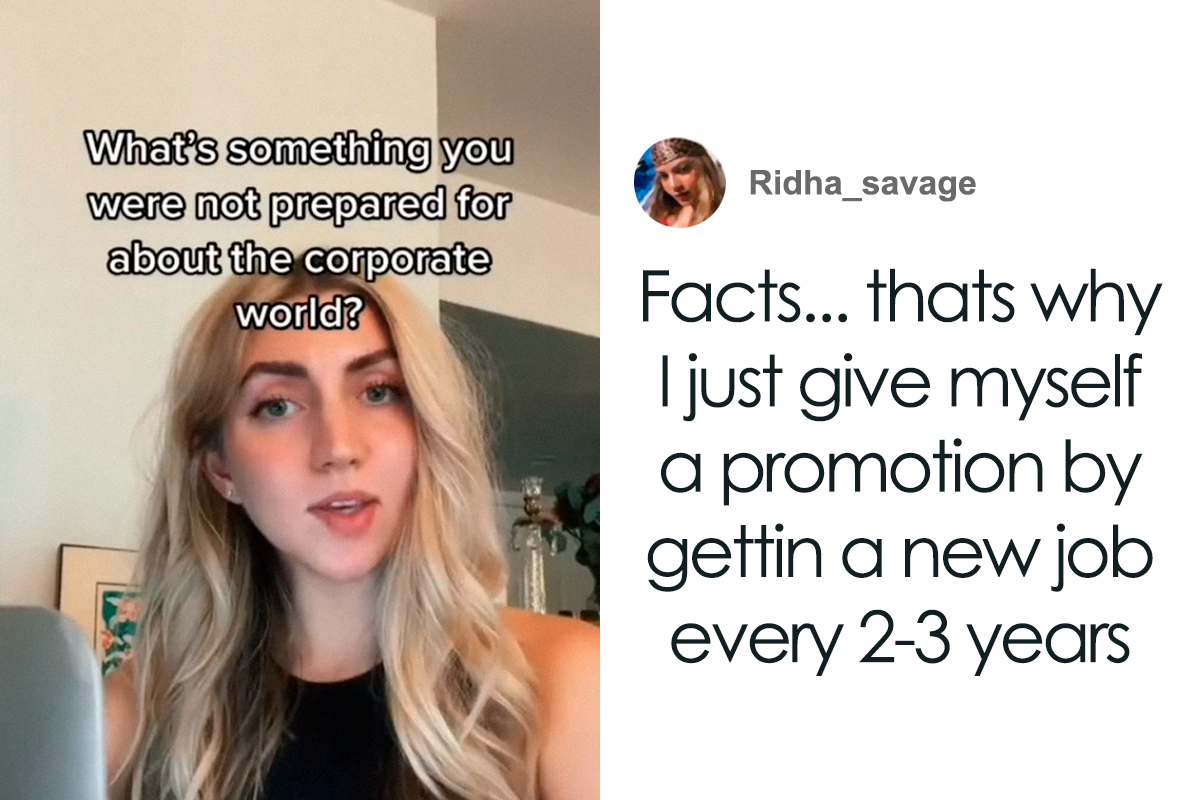
TikToker Says She Was Not Prepared For What It Takes To Be Promoted In The Corporate World, Sparks A Discussion
Entering the workforce is a lot like driving on your own for the first time. You know you’re ready, but it’s still stressing you out. And just like you learn that real-life traffic doesn’t behave the same as in the textbooks, with time you also realize that companies are governed by laws you didn’t even expect.
So when LA-based content creator Jenna (@jennahushka) made a TikTok, asking people what’s something they were not prepared for about the corporate world, replies immediately started pouring in.
One of the most popular ones came from Shelby Mayfield (@shelbymayfield). In it, the Dallasite explained that the importance of “kissing a**” for promotion was the most surprising lesson she has learned, and her words ignited a pretty heated discussion on the platform.
A now-viral TikTok asked people to share the most surprising lessons they’ve learned after entering the workforce
Image credits: shelbymayfield
And an entry by Shelby Mayfield apparently got everyone’s attention
Image credits: shelbymayfield
It pointed out that merely trying your hardest isn’t enough to climb the corporate ladder
Image credits: shelbymayfield
A promotion sounds exciting. You are trusted with more responsibilities, propel your career, award your ego with a heightened sense of achievement, and, of course, start making more money.
But Dr. Ruchi Sinha, an Associate Professor of Organizational Behaviour at the Business School of the University of South Australia agrees with Shelby, saying that earning a higher spot at an organization takes more than a job well done.
“Even if you are a high performer who takes initiative and surpasses your goals, you often still have to convince your manager that you deserve to level up,” Sinha wrote in the Harvard Business Review.
Over the course of her career in academia, Sinha has taught many students how to effectively navigate through these competitive waters, and has witnessed numerous strategies achieve desired results. Sucking up is one of them.
Sinha believes that employees who seek to better their future need a “sponsor.”
“A sponsor is someone within your organization who is in a position of power and will support your case for a promotion,” she explained. “This person could be a senior employee who you regularly work with or an executive who you admire and have developed a mentorship with. Usually, sponsorships take a long period of time and effort to develop.”
Once you identify a potential sponsor, you need to establish a relationship with them. Then, try to meet with them regularly to discuss your career aspirations and progress.
“Schedule a lunch or virtual coffee with them once every couple of months and seek their feedback on your work, as well as their advice around how to reach your goals. A sponsor is someone who will not only informally coach you, but also advocate for you behind closed doors, introduce you to other executives who will be crucial for your growth, and protect you from adverse publicity. Most importantly, they can tell your boss that, yes, you do deserve to get promoted when the time comes,” Sinha said.
In this way, sponsors often become more valuable than mentors. “Research shows that those who have sponsors at work tend to be seen in a more positive light,” Sinha added.
And as her video reply gained more and more views
@shelbymayfield #stitch with @Jenna | Corporate Humor ♬ original sound – Shelby
Image credits: Gustavo Fring (not the actual photo)
But even if they do everything right, some people are still overlooked. For example, in a study of evaluation and promotion data from a large retail chain, Professor of Finance at the Yale School of Management Kelly Shue and her co-authors found that women got higher performance ratings than men but were consistently—and incorrectly—judged as having less leadership potential.
The study, which was based on assessment and promotion records for nearly 30,000 workers, discovered that women are 14% less likely to be promoted at the company each year and that a major factor contributing to this is that they are consistently judged as having lower leadership potential than men. In a two-part annual assessment, according to the records, women’s performance at the company is rated higher than men’s on average, but their potential is rated lower—a pattern that continues even when women exceed those expectations.
“What is commonly talked about in terms of management and potential are characteristics such as assertiveness, execution skills, charisma, leadership, ambition,” Shue said. “These are, I believe, real traits. They’re also highly subjective and stereotypically associated with male leaders. And what we saw in the data is a pretty strong bias against women in assessments of potential.”
Interestingly, the researchers thought the group that would be least likely to have these stereotypes of male leadership in mind would be female managers. But they also underestimate their high-performing women subordinates.
That means that Shelby and many, many others are stuck playing a rigged game where the odds are stacked against them.
People flocked its comment section to share what they think about the topic
I could get behind this if it wasn't just for a certain class of people. It's like we are taught to only look up to or praise people who are well off and already high in status. Yet we look down on and criticize people who are not well off and have zero status in this world. If we value, praise, and treat everyone with dignity and decency, as we should. I would be ok with this. It's not only wrong but heartbreaking that we as humans lift up some but not others. All because a person has more money and is more popular. Completely disregarding anyone who is not in that class as if they don't matter and aren't as deserving as the ones we do look up to. Like who started teaching us that that's how we should see human beings? And when are we going to get to a point that we stop doing that and acknowledge it's wrong?
Until we arrive at a mostly automated post-scarcity future, the late-stage capitalist wealth-worship is just going to get worse over time.
Load More Replies...Worked corporate until the age of 43. Left, took a job managing a restaurant for roughly 30% of my previous salary. Honed my cooking, gardening and dress making skills. Apparently the universe was waiting for me to discover myself and find contentment. It offered me a few minths of that and then gave me the grand prize. A position as a (work from home) Web content manager where I get to write real words that actual people read and help aspiring writers to reach their potential. Stuff you, glass ceiling egotists!
The corporate world operates pretty much on the Pack system: All Pack members have to make "nice" with the stronger members of the Pack; Everyone is subservient to the Alpha Male (and/or Alpha Female) who rules the Pack; Promotion is obtained only after some very serious sucking-up to the Powers-That-Be; If you've been promoted, it usually means that some other poor sod has been summarily dispensed with and that you are the new patsy; and the lower you are on the totem pole, the more kissing up you have to do just to survive. Any infringement of these rules means that, at best you will get kicked back down the ladder to start again from the bottom, at worst you will find yourself out in the cold - always assuming you survive the experience, that is...
I could get behind this if it wasn't just for a certain class of people. It's like we are taught to only look up to or praise people who are well off and already high in status. Yet we look down on and criticize people who are not well off and have zero status in this world. If we value, praise, and treat everyone with dignity and decency, as we should. I would be ok with this. It's not only wrong but heartbreaking that we as humans lift up some but not others. All because a person has more money and is more popular. Completely disregarding anyone who is not in that class as if they don't matter and aren't as deserving as the ones we do look up to. Like who started teaching us that that's how we should see human beings? And when are we going to get to a point that we stop doing that and acknowledge it's wrong?
Until we arrive at a mostly automated post-scarcity future, the late-stage capitalist wealth-worship is just going to get worse over time.
Load More Replies...Worked corporate until the age of 43. Left, took a job managing a restaurant for roughly 30% of my previous salary. Honed my cooking, gardening and dress making skills. Apparently the universe was waiting for me to discover myself and find contentment. It offered me a few minths of that and then gave me the grand prize. A position as a (work from home) Web content manager where I get to write real words that actual people read and help aspiring writers to reach their potential. Stuff you, glass ceiling egotists!
The corporate world operates pretty much on the Pack system: All Pack members have to make "nice" with the stronger members of the Pack; Everyone is subservient to the Alpha Male (and/or Alpha Female) who rules the Pack; Promotion is obtained only after some very serious sucking-up to the Powers-That-Be; If you've been promoted, it usually means that some other poor sod has been summarily dispensed with and that you are the new patsy; and the lower you are on the totem pole, the more kissing up you have to do just to survive. Any infringement of these rules means that, at best you will get kicked back down the ladder to start again from the bottom, at worst you will find yourself out in the cold - always assuming you survive the experience, that is...

 Dark Mode
Dark Mode 

 No fees, cancel anytime
No fees, cancel anytime 














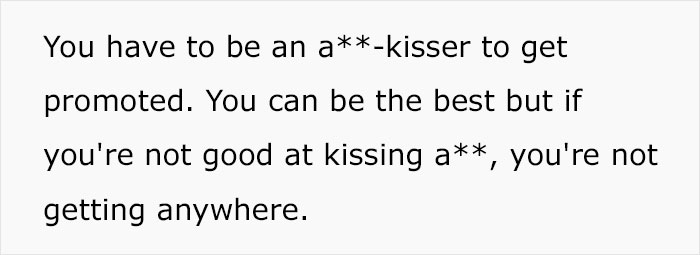






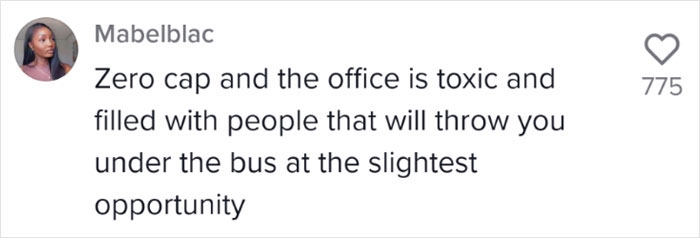







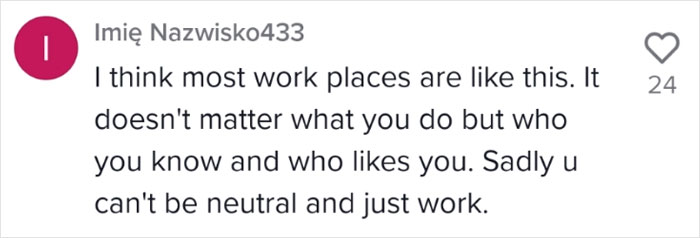
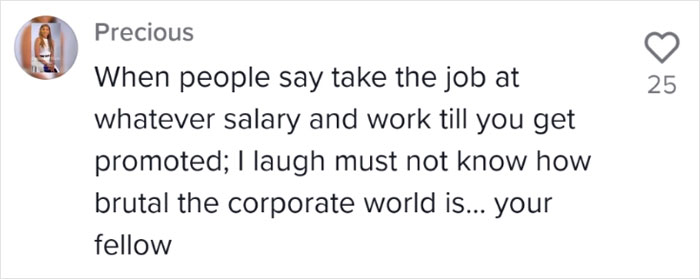












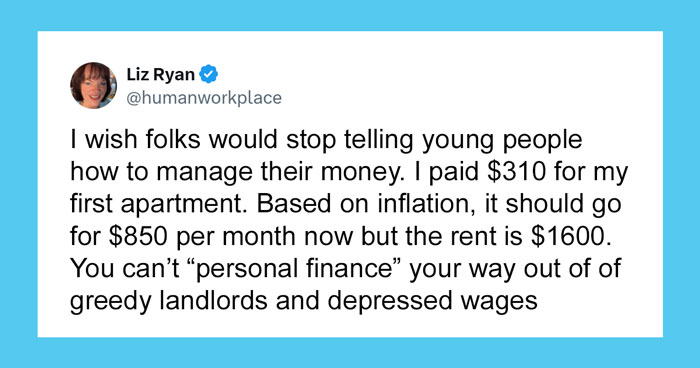














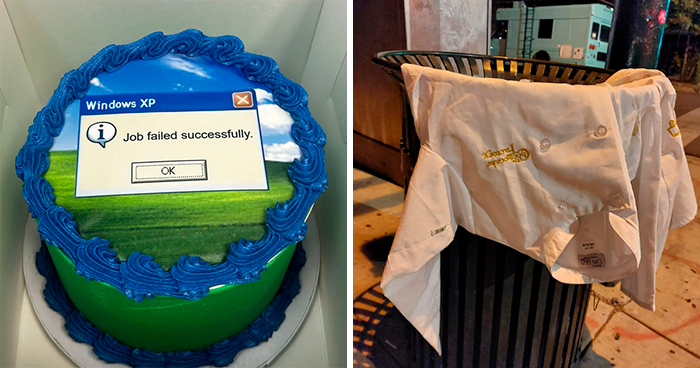

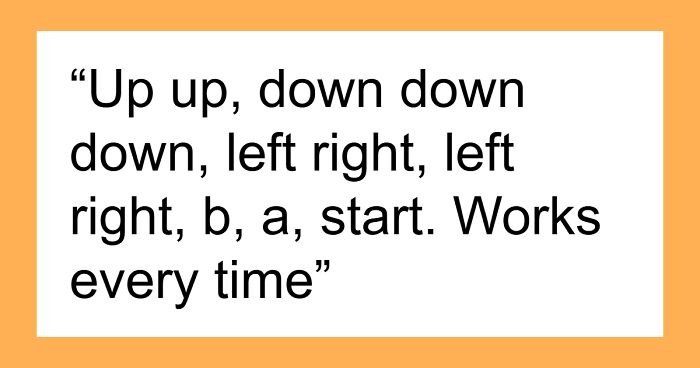
17
33